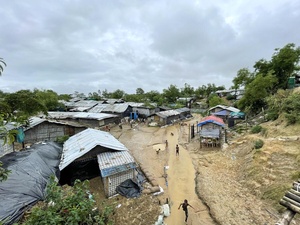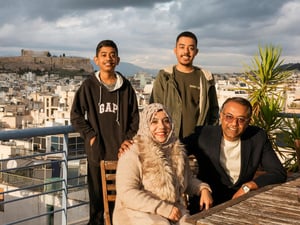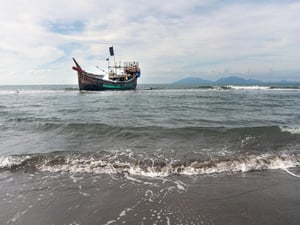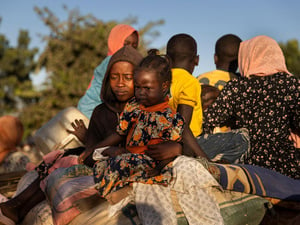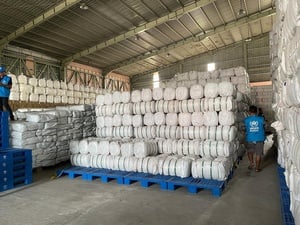One year on: Displacement in Rakhine state, Myanmar
One year on: Displacement in Rakhine state, Myanmar
Up to 140,000 people remain displaced a year after inter-communal violence erupted in Myanmar's Rakhine State. UNHCR stands ready to provide the Myanmar government with technical support to register all internally displaced people (IDPs) and to promote reconciliation so that voluntary returns to places of origin can eventually take place in a safe and sustainable way.
The first wave of riots started in northern Rakhine State on 8 June last year and uprooted some 75,000 people across the state. Another 36,000 were displaced by a second wave of unrest in October. Many others who were not directly affected by the violence have lost their livelihoods as a result of restricted movements due to the security situation. Some have been forced to leave their homes in search of assistance. There are an estimated 13,000 people living in makeshift sites around the state capital Sittwe and some 2,800 people in Maungdaw who are not formally considered IDPs by the authorities and who have therefore not received aid systematically.
UNHCR is the lead agency for relief items, shelters, protection, camp coordination and camp management under the inter-agency response in Rakhine state. In the last year, we have distributed relief supplies such as plastic sheets, sleeping mats and kitchen sets for 75,000 IDPs. Supplementing the government's shelter program, we have provided tents, temporary or permanent shelters to 45,000 people. Additional shelters are being built by UNHCR for 25,000 IDPs in Pauktaw and Myebon townships who are vulnerable to flooding during the rainy season.
UNHCR has been working with the authorities and partner agencies to make sure that the IDPs receive adequate water, sanitation and health care services. This has been difficult in some areas, with aid workers being harassed or threatened and displaced people unable to move freely to access basic services. Many of the displaced children have been out of school for a year.
UNHCR has highlighted the urgent need to register all IDPs in order to improve aid delivery and better respond to the needs of the most vulnerable among them. While humanitarian assistance remains the priority for now, we are also working with the Government to advocate for action to promote dialogue and peaceful co-existence between the communities to pave the way for voluntary return.
Active steps must also be taken to stem the outflow of people from Rakhine state. Since last June, more than 27,000 people - the majority believed to be from Rakhine state - have embarked on dangerous boat journeys from the Bay of Bengal in search of safety and stability in other countries. Scores have died in their attempts. Many have endured weeks of drifting in the high seas with little food or water. Some were reportedly pushed back from the shores of neighbouring states, while others were detained upon arrival in South-east Asia.
UNHCR has appealed to governments in the region to keep their doors open to people in need of international protection. In parallel, we are asking the Myanmar authorities to urgently address the root causes of this outflow. They could do so by lifting restrictions on people without citizenship, facilitating freedom of movement, livelihoods and access to basic rights and services. Further steps should be taken to regularize their legal status, provide easy access to citizenship procedures to those who qualify, and promote development across Rakhine State. UNHCR expressed readiness provide technical assistance in addressing issues related to lack of citizenship.
UNHCR is seeking US$80 million to meet the needs of people of concern in Myanmar - including IDPs in Rakhine, Kachin and the South-east - till the end of the year. We have so far received 18 per cent of this amount.
For more information on this topic, please contact:
- In Bangkok: Vivian Tan, on mobile +66 818 270 280
- In Geneva: Babar Baloch, on mobile +41 79 557 9106




